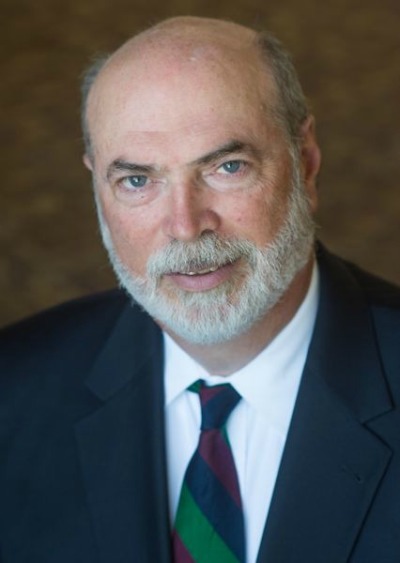Depressed About the Nation? Remember Jack Kemp

I had the occasion this week to dust off my old copy of The Way the World Works by Jude Wanniski, a close advisor to former HUD Secretary and former Congressman Jack Kemp, back in the day when the Carter malaise had us thinking much in the way we do today. As I loaned the book to one of my students who needed it for a paper he is writing, I also gave him an admonition to take good care of it.
It is in a worn condition.
Reading that book back in the late 1970s was the beginning of a lifetime fascination with political economics. As I thumbed through the book again, two folded up pieces of newspaper fell onto my desk. They were op-ed essays from The Wall Street Journal that I had clipped out and saved from years ago. One, from Nov. 29, 1979, was titled "Jack Kemp's Intellectual Blitz," a word-play on Kemp's first career as a professional football quarterback. The other was from Jan. 18, 1996, titled "Jack Kemp vs. Henry Simons."
I reread the old essays with a twinge of sadness. In my mind, Jack Kemp was one of the great ones, a rare politician who was truly a public servant. A devout Christian, Jack Kemp died too soon in 2009 from brain cancer.
These two essays were bookends on the heyday of Jack Kemp's influence on the political scene and they were a reminder of what made him great. The 1979 essay was in the early days of Kemp's political career, yet it showed what an intellectual force he had already become in Congress. The essay was about Kemp's book, An American Renaissance, written in the dreary days of the Carter malaise. Kemp was famously optimistic, and his book laid out an optimistic agenda for the coming decade of the '80s. His optimism was a perfect fit with the optimism of President Reagan. The supply-side philosophy embedded in An American Renaissance bore fruit in the Kemp-Roth tax cuts of 1981 that ushered in Reaganomics and 20 years of economic growth.
Jack Kemp was a man of ideas. The second Wall Street Journal essay was also devoted to tax reform. It was about the deep thinking that lay behind a seemingly simple idea, a fair tax system, as presented in the report of the Kemp Commission. Jack Kemp is remembered today for being a champion of supply side economics (an influence of Wanniski), but his ideas went well beyond just tax reform.
He was eager to see that all Americans had the opportunity to enjoy the blessings of growth-oriented free enterprise. He championed Enterprise Zones to bring economic opportunity into inner cities devastated by poverty. He wanted the Republicans to be the party of ideas. He wanted the party of Lincoln to become the natural home once again of African Americans. He embraced his persona as a "bleeding-heart conservative".
Jack Kemp was at his best when he traveled to California in 1994 to rebuke the Republican establishment of California for their policies regarding migrants and immigration and to publicly campaign against Proposition 187. Almost alone among prominent Republicans, he stood up against the populism of anti-immigration, with his usual optimism and fair-mindedness. But his party had moved on from a focus on ideas about expanding freedom, opportunity and economic growth to issues of protectionism. That kind of zero-sum thinking was simply not in Jack Kemp's political DNA. Some elements of the Republican party are still afflicted with zero-sum thinking with respect to immigration.
Ideas matter. Jack Kemp influenced many people in Washington and in the nation through his ideas and his optimism. Speaker of the House Paul Ryan is one who has been influenced by the ideas and optimism of Jack Kemp.
As the nation prepares to move into a new era and a new administration next year, Paul Ryan will play a key role in shaping policy. Perhaps, in a reprise of the way in which Jack Kemp energetically led ideas-driven policy to get out of the Carter malaise, Speaker Ryan will energetically lead an ideas-driven policy to get the nation out of the liberty-quashing and growth-stifling regulatory swamp of the Obama administration.
We can hope for change. Yes we can.




























